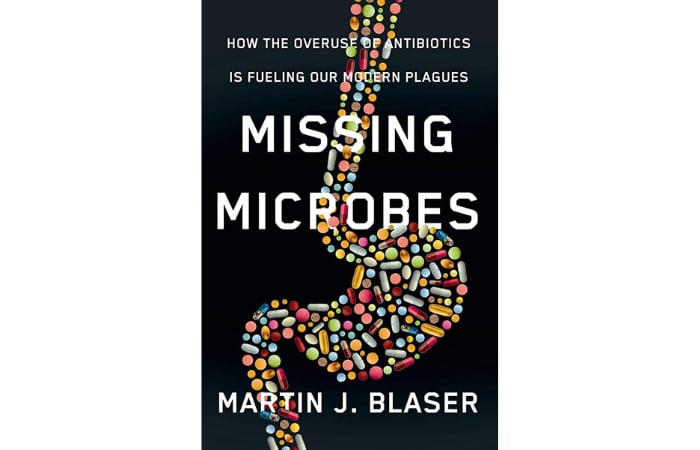Why is your microbiome important?
Links have been found between the composition of your microbiome—your particular collection of microbes—and cancer outcomes. Your micriobiome also affects other body terrain factors and side effects common in cancer.
Connections to cancer outcomes
Researchers are finding that some microorganisms may have a direct connection to development or proliferation of cancer, as shown so far in a few cancer types.
Connections to conventional cancer treatments
The composition of your microbiome can influence how well you respond to chemotherapy, immunotherapy, or stem cell transplant. Your gut microbiota is particularly influential in these situations:26Peled JU, Gomes ALC et al. Microbiota as predictor of mortality in allogeneic hematopoietic-cell transplantation. New England Journal of Medicine. 2020;382(9):822–834; Block KI, Block PB, Gyllenhaal C. Integrative treatment for colorectal cancer: a comprehensive approach. Journal of Alternative and Complementary Medicine. 2018;24(9-10):890–901; Bultman SJ. Emerging roles of the microbiome in cancer. Carcinogenesis. 2014;35(2):249–255; Gopalakrishnan V, Helmink BA, Spencer CN, Reuben A, Wargo JA. The influence of the gut microbiome on cancer, immunity, and cancer immunotherapy. Cancer Cell. 2018;33(4):570‐580; Routy B, Le Chatelier E et al. Gut microbiome influences efficacy of PD-1-based immunotherapy against epithelial tumors. Science. 2018 Jan 5;359(6371):91-97; Stein-Thoeringer CK, Saini NY et al. A non-antibiotic-disrupted gut microbiome is associated with clinical responses to CD19-CAR-T cell cancer immunotherapy. Nature Medicine. 2023 Mar 13.
- A healthy gut microbiome appears to support the anticancer action of the chemotherapy drug oxaliplatin.
- Your gut microbiota can shape your response to platinum-based chemotherapies and cyclophosphamide therapy.
- Your gut microbiome is a main player in your response and toxicity to immunotherapy treatments, including immune checkpoint blockade and CAR-T therapy. For instance, bacteria in the genus Bifidobacterium are crucial to optimizing the anticancer action of ligand 1 drugs (PD 1 checkpoint inhibitors), which activate your immune system to attack tumors.
- The condition of the gut microbiota is associated with differences in long-term survival following allogeneic stem cell transplant › (transplant of cells from a matching donor) and in the toxicity of graft versus host disease (GvHD) › which might follow an allogeneic stem cell transplant.
- Gut microbes can prevent reactivation of chemotherapy metabolites in your intestines—such as camptothecin metabolites—that can damage your intestines and cause diarrhea.
The composition of the microbiome may influence responses to immunotherapy. Studies have investigated manipulating the gut microbiome to enhance responses to cancer immunotherapy.27Gopalakrishnan V, Helmink BA, Spencer CN, Reuben A, Wargo JA. The influence of the gut microbiome on cancer, immunity, and cancer immunotherapy. Cancer Cell. 2018;33(4):570‐580.
- Immune checkpoint inhibitors immunotherapy, such as anti-programmed cell death protein 1 (PD-1) and its ligand (PD-L1) and anti-cytotoxic T lymphocyte-associated protein 4 (CTLA-4)28Aghamajidi A, Maleki Vareki S. The effect of the gut microbiota on systemic and anti-tumor immunity and response to systemic therapy against cancer. Cancers (Basel). 2022 Jul 22;14(15):3563.
- Chimeric antigen receptor T cell (CAR-T) therapy for blood cancers29Hu Y, Li J et al. CAR-T cell therapy-related cytokine release syndrome and therapeutic response is modulated by the gut microbiome in hematologic malignancies. Nature Communications. 2022 Sep 9;13(1):5313.
- Regorafenib plus toripalimab for colorectal cancer30Wang F, He MM et al. Regorafenib plus toripalimab in patients with metastatic colorectal cancer: a phase Ib/II clinical trial and gut microbiome analysis. Cell Reports. Medicine. 2021 Aug 27;2(9):100383.
- Anti-PD-1 immunotherapy for melanoma31Baruch EN, Youngster I et al. Fecal microbiota transplant promotes response in immunotherapy-refractory melanoma patients. Science. 2021 Feb 5;371(6529):602-609; Davar D, Dzutsev AK et al. Fecal microbiota transplant overcomes resistance to anti-PD-1 therapy in melanoma patients. Science. 2021 Feb 5;371(6529):595-602.
- Atezolizumab use for urothelial carcinoma;32Hopkins AM, Kichenadasse G, Karapetis CS, Rowland A, Sorich MJ. Concomitant antibiotic use and survival in urothelial carcinoma treated with atezolizumab. European Urology. 2020 Oct;78(4):540-543. worse survival was found among people treated with antibiotics while undergoing atezolizumab treatment, which may have involved changes to the microbiome, although the researchers did not report directly on the microbiome
- Some gut microbe types (signatures) are linked to better response to anti-PD1 immunotherapy for melanoma.33Spencer CN, Gopalakrishnan V et al. The gut microbiome (GM) and immunotherapy response are influenced by host lifestyle factors [abstract]. In: Proceedings of the American Association for Cancer Research Annual Meeting 2019; 2019 Mar 29-Apr 3; Atlanta, GA. Philadelphia (PA): AACR; Cancer Research 2019;79(13 Suppl):Abstract nr 2838; Gopalakrishnan V, Spencer CN et al. Gut microbiome modulates response to anti-PD-1 immunotherapy in melanoma patients. Science. 2018 Jan 5;359(6371):97-103.
Connections to body terrain factors
Your microbiome has links to several other body terrainthe internal conditions of your body, including nutritional status, fitness, blood sugar balance, hormone balance, inflammation and more factors. Sometimes the cause and effect are seen in both directions (bidirectional). Sometimes an imbalance in one terrain factor causes a domino effect, toppling the balance of other terrain factors. Details of these connections follow, but first we want to emphasize the web of connections among factors that aren’t as apparent by looking at factors one at a time.
Your microbiome influences and is influenced by glucose. Because of its important metabolic function, your microbiome may influence the development of both obesity and diabetes. An imbalanced gut microbiota is linked to impaired blood sugar control, insulin resistance and development of type 2 diabetes.34Gérard C, Vidal H. Impact of gut microbiota on host glycemic control. Frontiers in Endocrinology (Lausanne). 2019 Jan 30;10:29. People with impaired blood sugar control have lower levels of helpful gut bacteria. Though we find worse microbial imbalance in people with excess body weight, weight loss tends to improve microbial balance. Measures to improve the health of your microbiome, such as through a high-fiber, plant-based diet, may promote beneficial microorganisms and contribute to the health of your metabolism.
Your microbiome has a hand in hormone balance, specifically estrogen metabolism. Some microbes in the intestine are estrogenic and others anti-estrogenic, which may ultimately have some influence in cancers driven by estrogen.
Your microbiome, when in balance, can be a champion for healthy immunity. For instance, healthy microorganisms can keep disease-causing (pathogenic) microorganisms in check. A balanced microbiome can also stimulate the development of T- helper cells, which fight infection. A healthy microbiome can inhibit immune factors that promote chronic inflammation.
Bottom line: Your microbiome is connected with many other terrain factors. We recommend you work with your healthcare practitioner to determine which terrain imbalances you may have and what is driving those imbalances. Then you can make a plan to optimize your terrain in the most sensible way. For instance, if you struggle to manage excess body weight, you may want a healthy weight-loss program that includes foods that help restore and maintain your microbiome balance from your mouth to your colon.
Connections to symptoms and side effects of cancer
CancerChoices advisor Brian Bouch, MD, explains the importance of the microbiome in integrative cancer care.
Play videoHelpful links
With gratitude to Julie M. Deleemans, MSc, PhD(c), for her contributions
Shreiner AB, Kao JY, Young VB. The gut microbiome in health and in disease. Current Opinion in Gastroenterology. 2015 Jan;31(1):69-75.
Francescone R, Hou V, Grivennikov SI. Microbiome, inflammation, and cancer. Cancer Journal. 2014 May-Jun;20(3):181-9.
References


